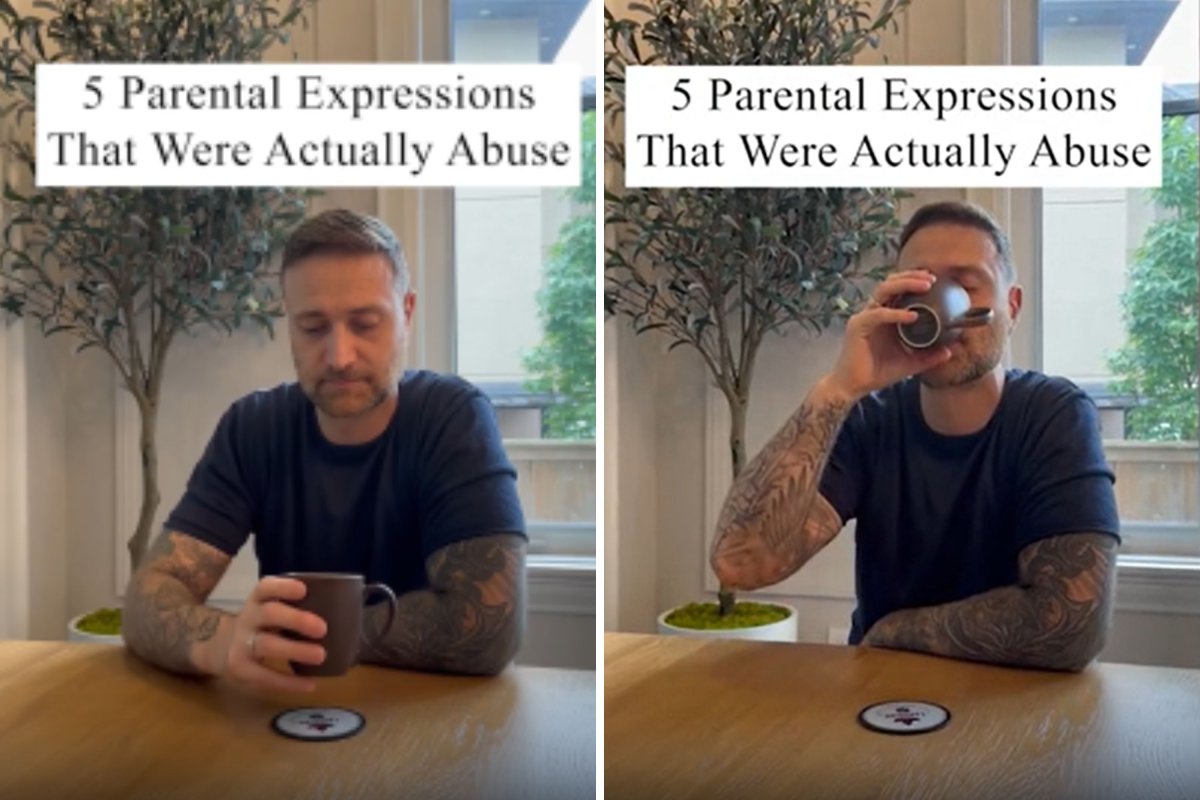A trauma specialist has shed light on common parenting phrases used by older parents that may have had a lasting impact on children.
Dr. Konstantine Bisbikos shared the five expressions he said were "actually abuse" in a video on Instagram. The video has received over 75,000 likes.
Newsweek spoke to Bisbikos, along with child and family psychologist Caitlin Slavens, about the parenting phrases, their cultural implications and how parenting styles are ever evolving.

In the video, Dr. Bisbikos identified five common phrases that older parents may have not realized were emotionally harmful. According to him, the five phrases and their interpretations are:
"I gave you everything, you're so ungrateful"
Translation: Your emotions and needs are invalid because I provided material things.
Impact: Creates lifelong shame around having needs.
"Stop crying or I'll give you something to cry about"
Translation: Your emotional pain is unacceptable and deserves punishment.
Impact: Leads to emotional suppression and anxiety.
"Why can't you be more like your sister/brother?"
Translation: You're not enough as you are.
Impact: Creates deep-rooted inadequacy and competition.
"You're too sensitive"
Translation: Your emotional responses are wrong.
Impact: Causes self-doubt and invalidation of feelings.
"I'm the parent, you're the child"
Translation: Your perspective doesn't matter.
Impact: Creates difficulty with authority and self-advocacy.
Not Just 'Tough Love'
Bisbikos told Newsweek that the expressions could have unintended but long-lasting emotional impacts. He also emphasized that he did not judge parents who had used those phrases.
"My intention was geared around shedding light on family dynamics as a whole, as we can all relate to this in one way or another," he said. "Sometimes as parents we unknowingly try to make ourselves feel better about ourselves at the cost of hurting our children in very subtle ways."
Bisbikos further explained that while such behaviors were learned through societal and familial conditioning, it was crucial to raise awareness and allow space for self-reflection.
"The more we discuss these topics, the more awareness we will have within our own lives with respect to how we feel and why, and to know that it is OK to feel that way," he said.
Parenting Norms Today
The expressions that Bisbikos listed are commonly understood to belong to older generations.
Caitlin Slavens, a psychologist and family expert at MamaPsychologists, told Newsweek that different parenting approaches were the norm in the past.
"These sayings were common among Baby Boomers and Gen X parents, often steeped in a cultural history of stoicism and obedience," Slavens said. "Many parents from these generations were shaped by societal expectations to raise 'tough' kids who could endure adversity without whining.
"Many Boomers had parents who lived through the Great Depression and world wars, where survival and practicality were more important than emotional expression. These attitudes seeped into parenting practices, allowing little space for the child's emotional world."
Parents who used the phrases probably did not intend to do any harm, but their words could have had an impact nonetheless, Slavens said.
She added: "In the long run, this can result in issues with emotional regulation, anxiety and even challenges in attaining healthy relationships in adulthood."
For parents looking to break the cycle of harmful communication, both experts offered practical tips. Bisbikos emphasized the need to name old, harmful patterns, and Slavens advised parents to pause before reacting to their children.
She said: "When your child's behavior feels frustrating, take a deep breath and pause. This creates the space for an intentioned response instead of a habitual reaction."
She also suggested validating a child's emotions and reframing the language used. Instead of dismissing emotions with phrases like "Stop crying," she recommended saying: "It's OK to cry. Let's see how we can make it better."



















:quality(85):upscale()/2024/04/24/878/n/3019466/36c5693c662965c5d1ce91.72473705_.jpg)
 English (US) ·
English (US) ·